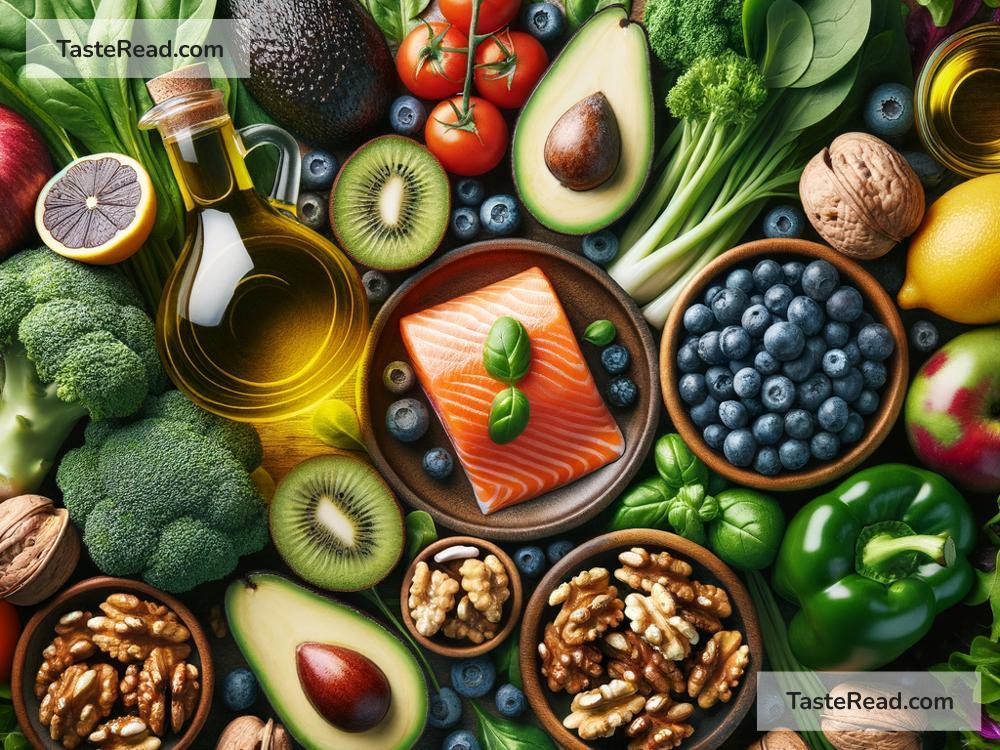Boost Your Adipokine Health with These Nutrient-Rich Foods
Adipokines may not be a term most people hear often, but they play an important role in your body’s health. These signaling proteins, secreted by fat cells (adipose tissue), help regulate inflammation, energy metabolism, insulin sensitivity, and even hunger. However, when adipokine levels become imbalanced due to poor diet, obesity, or a sedentary lifestyle, it can lead to problems like diabetes, heart disease, or chronic inflammation.
The good news is that certain foods can help improve adipokine regulation and keep your body running smoothly. Here’s a list of delicious, easy-to-find foods that support adipokine health—and your overall well-being!
1. Fatty Fish
Fatty fish like salmon, mackerel, sardines, and trout are rich in omega-3 fatty acids, which are known to fight inflammation and improve adipokine balance. One adipokine in particular, adiponectin, is linked to reduced inflammation, better insulin sensitivity, and fat metabolism—and omega-3s help boost its levels in the body.
Incorporate fatty fish into your meals at least twice a week. Grilled salmon with lemon and herbs or sardines on whole-grain crackers make delicious and nutrient-packed options.
2. Fruits Rich in Antioxidants
Fruits like berries, oranges, grapefruit, and cherries are full of antioxidants like vitamin C and anthocyanins. These nutrients help reduce oxidative stress in the body, which can throw adipokine regulation off balance. In particular, flavonoids found in berries improve both adiponectin levels and overall cardiovascular health.
Snack on a bowl of mixed berries, make fresh citrus juices, or add cherries to your yogurt for a burst of flavor and health benefits.
3. Leafy Greens
Dark leafy greens such as spinach, kale, Swiss chard, and collard greens are loaded with vitamins, minerals, and fiber—all essential for proper adipokine function. The magnesium in these vegetables is particularly helpful for boosting adiponectin levels and improving insulin sensitivity. Plus, their low calorie density makes them a great choice if you’re managing your weight.
Add greens to your salads, smoothies, or stews to give your meals an added nutritional punch.
4. Whole Grains
Whole grains like quinoa, oats, brown rice, and barley contain fiber and complex carbohydrates that promote stable blood sugar levels and support adipokine regulation. Fiber, in particular, has been shown to help reduce inflammation and optimize metabolism, benefiting adipokine health.
Start your day with a bowl of oatmeal topped with nuts and fruit, or serve quinoa as a side dish instead of white rice.
5. Nuts and Seeds
Nuts and seeds such as almonds, walnuts, chia seeds, and flaxseeds are excellent sources of healthy fats, protein, and antioxidants. They also contain nutrients like magnesium, selenium, and omega-3 fatty acids, all of which support better adipokine balance.
Snack on a handful of almonds between meals, sprinkle chia seeds into your smoothies, or add crushed walnuts to your salads for a crunchy boost.
6. Olive Oil
Extra virgin olive oil is a staple of the Mediterranean diet and a proven superfood for reducing inflammation and improving adipokine regulation. Its healthy monounsaturated fats and antioxidants help increase adiponectin levels and bolster metabolic health.
Use olive oil as your primary cooking oil, or drizzle it over salads, steamed veggies, or whole-grain bread for a delicious and nutrient-rich touch.
7. Legumes
Beans, lentils, chickpeas, and other legumes are nutrient-dense powerhouses full of fiber, protein, and essential minerals. Their high fiber content helps regulate blood sugar levels, which can boost adiponectin production and support healthy adipokine regulation.
Incorporate legumes into your meals by making lentil soups, chickpea hummus, or black bean tacos.
8. Green Tea
Green tea is not only refreshing but also rich in catechins, a type of antioxidant that helps reduce inflammation and improve adipokine levels in the body. Studies show that regularly drinking green tea may help boost adiponectin, reduce belly fat, and improve overall metabolic health.
Replace sugary beverages with a cup of unsweetened green tea, either hot or iced, for a healthier option throughout the day.
9. Spices
Certain spices such as turmeric, cinnamon, and ginger have powerful anti-inflammatory properties that positively impact adipokine regulation. Turmeric contains curcumin, an antioxidant that fights inflammation, while cinnamon has been shown to improve insulin sensitivity and adiponectin levels.
Add a pinch of turmeric or cinnamon to your oatmeal, coffee, or soups, and incorporate ginger into your teas and stir-fries.
Final Thoughts
Adipokines play a central role in your body’s metabolic health, and eating the right foods can help keep them balanced. A diet that includes fatty fish, leafy greens, fruits, whole grains, nuts, olive oil, legumes, green tea, and spices will not only benefit your adipokines but also improve your overall health. Pair these foods with regular exercise, stress management, and enough sleep for the best results.
Remember, small changes in your daily diet can make a big impact on how your body functions. Enjoy experimenting with recipes and flavors while working toward better health! Your adipokines—and your entire body—will thank you.


